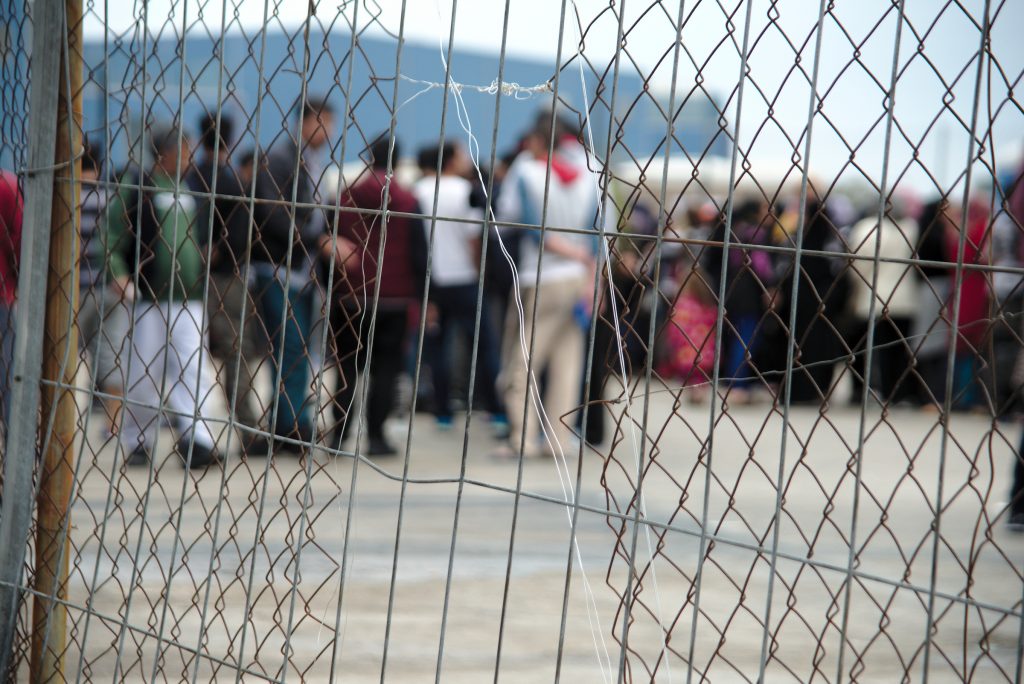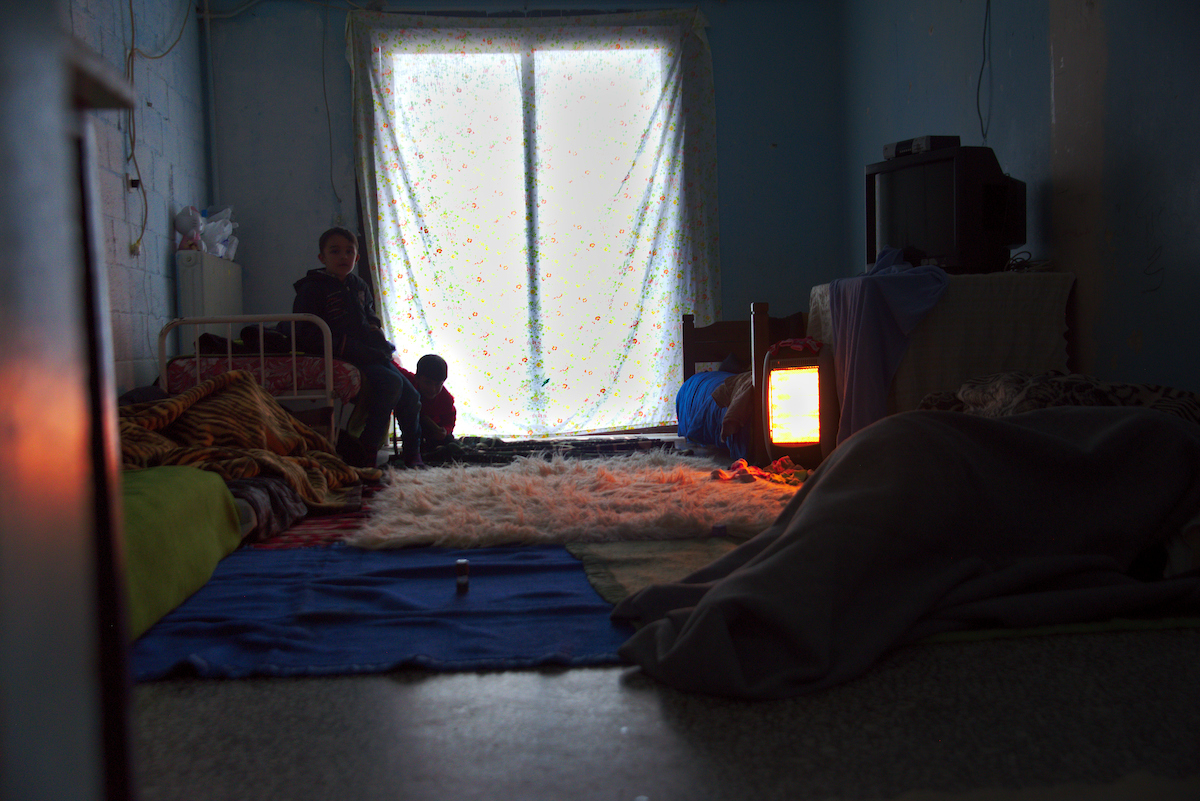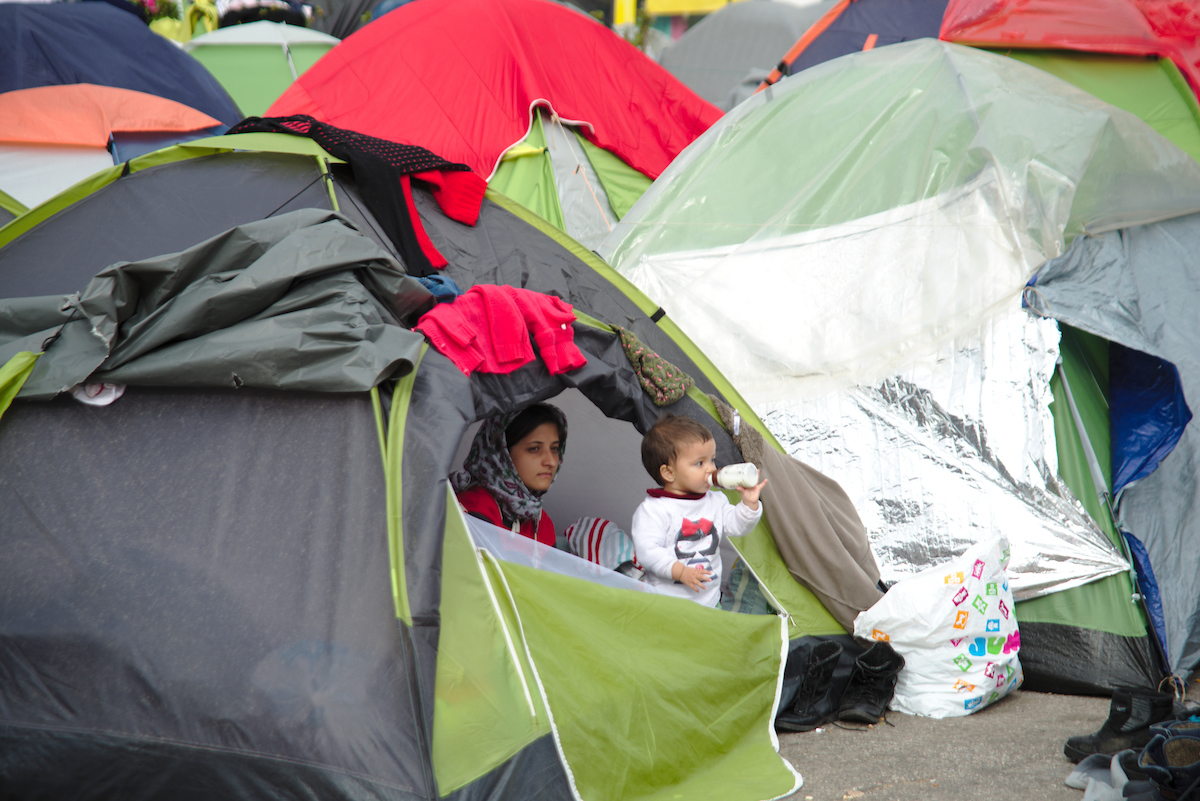
My project ‘Hate Hurts’ began with the aim of telling the personal stories of victims of hate crimes in order to provide an outlet for their voices, to expose the causes and effects of hate crimes, and to record the political and social background underpinning their occurrence. This photographic and human journey has brought me to the stories of many migrants, asylum seekers, and refugees in Athens, those who are forcibly living at the margins of society.
As I talked to them, I realised that hate crimes are also built on invisible layers created by an impenetrable bureaucracy and prejudice at the core of society. There seems to be a common objective in Greece and further afield to limit the movement of those deemed unwanted through a physical process of containment represented by detention centres, hot spots and similar structures, and a psychological repression which imposes on those considered dangerous restrictions so that they cease to ‘exist’ in ‘our’ societies.
Invisible barriers are built-in mechanisms which overall project the impenetrability of a country but would also keep those unwanted from entering the system of that country. Their existence seems to objectify the person that’s not wanted as s/he is contained at the margins of society, either in large disused spaces or left out from systems that would allow them to live their lives fully. Invisible borders don’t allow refugees and migrants to take control of their lives, leaving them in limbo in the face of the many legal regulations that keep them in this state. Typically, for instance, they have no permit to stay or leave, they aren’t allowed to work nor do they have access to a shelter or health provisions.
This is a politics of containment which targets a specific group of people. Limiting the movement of undesirable people, confining them into areas of hot spots and detentions with disregard to their age, gender, and their human rights, is a modern day hate crime. Looking in from the outside, people are fenced in, whether in a physical or psychological sense. It’s disturbing to see. Likewise, keeping a human being at the margins of society for years is equally a modern day hate crime. Their lives are kept on hold in this way, forcing them to fend for themselves in our impenetrable walls. In Greece, many are left in these conditions for years, paving their way forward with the help of charitable bodies, who offer the basics of food and general amenities.

Likewise, keeping a human being at the margins of society for years is equally a modern day hate crime. Their lives are kept on hold in this way, forcing them to fend for themselves in our impenetrable walls. In Greece, many are left in these conditions for years, paving their way forward with the help of charitable bodies, who offer the basics of food and general amenities.
